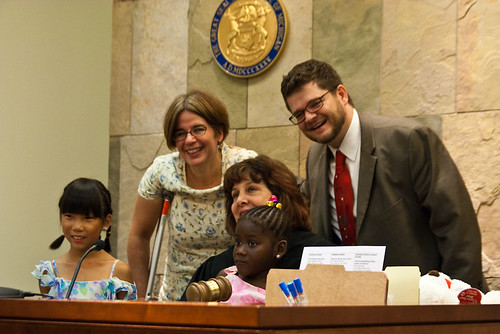Being a good parent is hard enough on a good day. However, when you’ve just gone through a divorce, making sure that your kids are doing fine is always much harder. You can be a good parent after a divorce though so doesn’t think that this is an unattainable goal.
When you use your parenting skills in a divorce, you help teach your kids to deal with various challenges, helping them to grow into well-adjusted individuals. If you’re going or have gone through a divorce and are trying to figure out how to be a good parent through it all, use these tips.
Put The Child First:
Many times a divorce is going to be messy and complicated. You and your former spouse may hate each other and have trouble even being in the same room. However, this attitude isn’t going to do any favors for your child. You need to make sure that you’re not focusing on yourself throughout the divorce.
Since it can be a fairly lengthy process, talk to your children openly throughout the entire ordeal and ask how they’re doing. They may not be coping so well. Also, when you begin to figure out custody agreements and other important details that are about the kids, get their input. They may not be very happy about the entire situation, but involving them in the process and showing them that you care, is going to help with the transition.
Remember It’s Not About You:
Well, at least not entirely. Obviously, your divorce is going to be a huge part of your life, but you are an adult. You have increased coping mechanisms as well as a mature perspective that your children lack. If you’re starting to fall into the victim mentality, then make the decision to turn this attitude around.
Accept the fact that even in the worst of marriages, you probably made some mistakes as well. When you get to this point, you’re not only helping yourself, you’re also showing your kids that it’s OK to be wrong sometimes and you should always acknowledge your mistakes.
Look At The Positives:
It’s always hard to see anything positive coming from a divorce, but there are many life lessons that you can gain from going through this process. Similarly, your kids can also gain more experience from you. However, you can’t do this if you simply refuse to deal with the problem at hand. As you go throughout the divorce, take each experience as a life lesson.
Many of them are not going to be easy, but if you pay attention, you will come through this experience and be a wiser and stronger person throughout the rest of your life. Make sure that you talk to your kids throughout the process and mention some of the lessons you’ve learned. They can similarly take your lessons and apply them to their lives and future relationships.
Always Be Respectful:
When a divorce with children happens, it’s likely that both parents will have custody or visitation rights. This is going to be hard to deal with, but you can’t let your own feelings get in the way of your children’s happiness. Working through the challenges of successfully communicating with an ex is a goal, which you’re probably not going to get right the first time.
Try to maintain a respectful relationship with your former spouse. This not only sets a good example for your kids, it also helps to make the entire ordeal so much easier
These are a few of the basic ways to make sure that you continue to be a good parent both through and after a divorce. Divorce is difficult for both parents and their children, so make sure that you pay attention to your kids and continue to make them a priority throughout the entire process. Divorce can be a positive or negative factor in a child’s life depending on how you react to it. If you treat it as a learning experience, it can help to grow the relationship that you have with your children.
However, it does take time and effort, so make sure that you’re being a mindful parent throughout the entire process to make the transition easy for your children.




